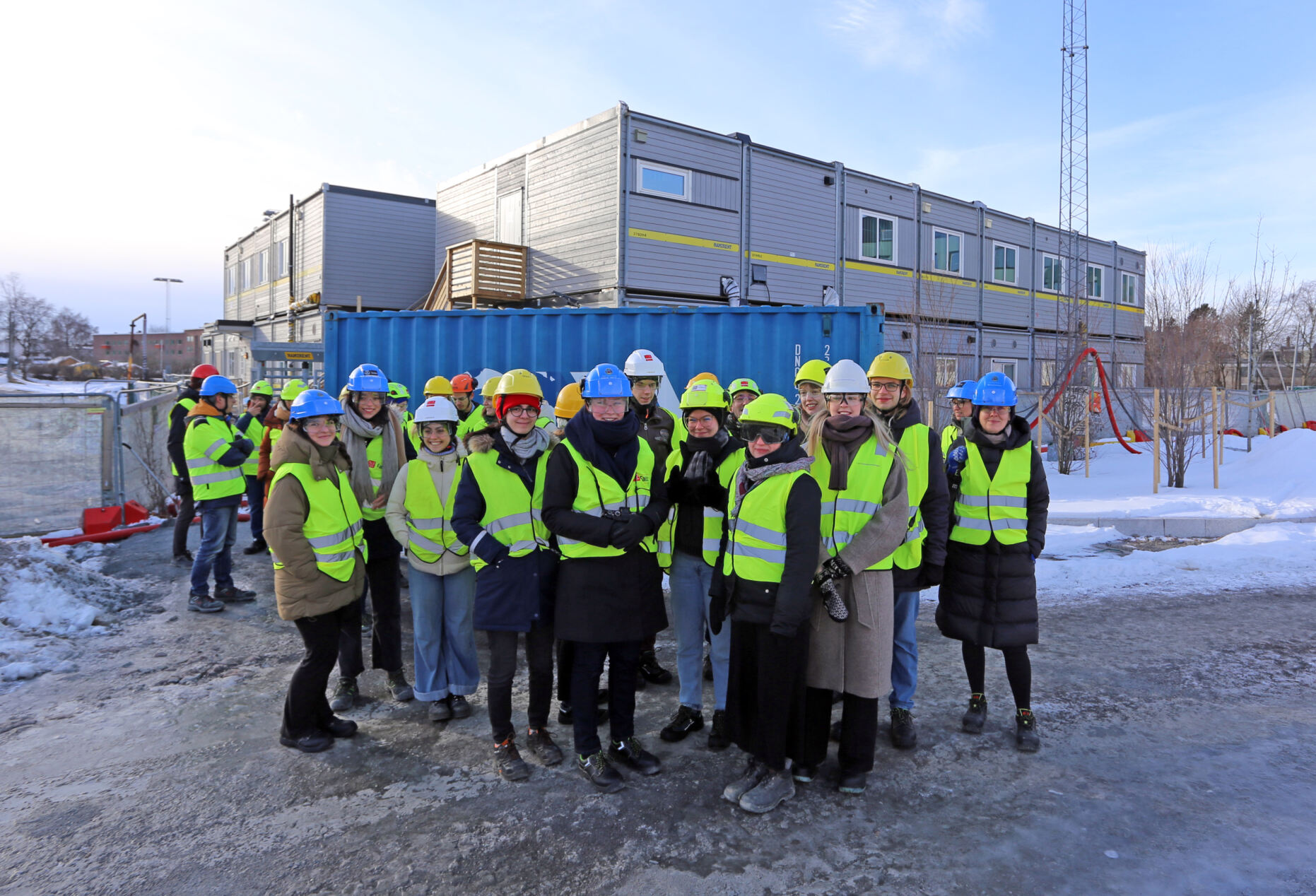What will you learn? - Sustainable Architecture - Master's Programme
What will you learn?

Sustainable solutions
The MSc in Sustainable Architecture at NTNU aims to educate and train building professionals in the analysis and implementation of solutions for lowering the environmental impact of buildings in a life-cycle perspective. Graduates of the programme are able to both develop of scientific research works and architectural design projects aiming for a zero-emission built environment.
Visit the architecture students' digital master exhibition 2025 here (website mostly in Norwegian).
The programme is built on the assumption that complex multidisciplinary processes - as sustainable environmental design requires - cannot be developed purely in theory. They rather need to be experienced in multidisciplinary teams, where environmental issues of different kinds are discussed and translated into architectural practice. The MSc programme in Sustainable Architecture is, for this reason, open to both architects and engineers.
A new generation of buildings
Nowadays, architects need to be able to design buildings that can establish a symbiotic relation with the natural environment. An architectural design process cannot any longer disregard a deep comprehension of the natural environment's limits and resources, both in qualitative and quantitative terms. Scientific principles are used in the program as a meaningful platform for imagining a new generation of buildings, able to turn the environmental impact from their construction, operation and disassembly, from a burden to a positive outcome.
Holistic approach
The curriculum of the Master in Sustainable Architecture is structured around three concerns about environmental impact of the built environment:
- environmental performance
- environmental impact
- integrated energy design processes
Each semester includes a theory course and a combined theory and architectural design course. During these, students acquire scientific knowledge and practical competences for lowering GHG emissions of buildings. Lectures, studios and laboratories are addressed towards each semester's focus without losing a holistic perspective.
- First semester focuses on climate analyses and the optimization of buildings' environmental performance.
- Second semester addresses issues related to the environmental impact of materials and life cycle analyses.
- During the third semester students are trained in the development of integrated design processes optimizing building environmental performance in relation to the integration of alternative energy systems
Throughout the two-year duration of the programme, a holistic approach is emphasized which encompasses the many architectural expressions and possibilities within a zero-emission built environment. Within each of the theory and project courses, high demands are made towards integrated design strategies to ensure the usability and synergy of the design with its surroundings and users.
Throughout the whole programme, the students are continuously trained in interdisciplinary co-operation to better equip integrated design methods in their everyday professional practice.
Learning outcomes
Learning outcomes
Learning outcome
Knowledge
The candidate
- has advanced knowledge of concepts and strategies for minimizing the environmental impact of buildings and neighbourhoods
- has advanced experience with work in interdisciplinary groups with the aim of contributing to a sustainable built environment
- has advanced knowledge of sustainable architecture as a field of knowledge; its theory and history as well as its sustainable, technical, scientific, social and cultural basis, and can apply this knowledge in his/her own architectural work.
- has advanced aesthetic and practical understanding of the architectural and engineering aspects of sustainable building design, and is able to apply this knowledge in his/her own architectural work.
- had advanced experiential knowledge of the relationship between the natural and the built environment and is able to translate this knowledge into design solutions for buildings and neighborhoods.
Skills
The candidate
- can give form to sustainable architecture and/or neighborhoods at an international architectural level through artistic and scientific investigations, concept development, and integrated design in relevant formats.
- is thoroughly trained in the use of design methods, tools and expressions, and can apply these in building and neighborhood design and/or research, in a targeted, professional and experimental manner, with the goal of a comformatble, enjoyable, and sustainable built envoronment.
- can critically assess and recognize quality and sustainability in architectural works, including in his/her own work, and make use of such assessments in his/her own work.
- can identify and utilize strategies, methods, and technologies to enhance the environmental performance of architecture
- can lead and collaborate in multidisciplinary design teams
General competencies
The candidate
- takes independent responsibility for his/her own learning and professional development and can apply his/her knowledge in new fields.
- can reflect critically and ethically on his/her own work, create new frameworks for understanding, and depart from conventions after critical consideration.
- can communicate architectural work, including his/her own and others work, to specialists as well as to the general public, at a professional level and in an academic context.
- relates his/her professional competence and involvement to key societal issues in general and sustainability in particular.
